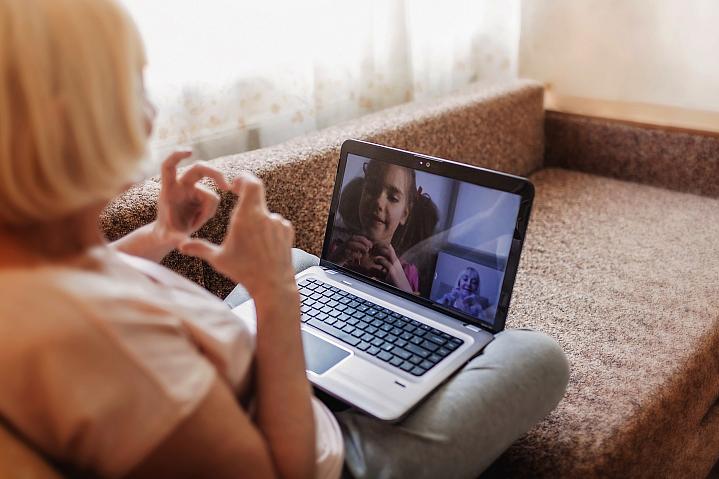Health Capsule
Staying Connected to Fight Loneliness
 Maria Symchych-Navrotska / iStock / Getty Images Plus
Maria Symchych-Navrotska / iStock / Getty Images PlusPositive relationships with friends and family help us thrive. Without social connections, it’s easy to feel lonely or isolated.
Many of us have been spending more time alone in our homes lately. While anyone can feel lonely, certain factors increase your risk. Major life changes or losses can increase feelings of loneliness.
Older adults are at greater risk because they’re more likely to live alone. Mobility issues can make it harder to leave the house. And sensory issues like vision and hearing loss can contribute to feeling isolated.
No matter what your age, it’s important for your health to stay socially connected. Loneliness can take a toll. It’s linked to higher rates of depression and heart disease, and can weaken your immune system. Here are some strategies to help stay connected if you’re feeling lonely.
Get your heart going. Exercise has been shown to reduce stress and boost your mood. Whether it’s sweating to a workout video or taking a walk around your neighborhood, exercise can help.
You might also consider getting a pet. Animals can be a source of comfort and companionship.
Many people are using technology to connect with friends and family virtually. Take time to reach out to others by phone or online. A call or video chat can remind you that you’re not alone.
Providing social support or helping others in need can give meaning to our lives and help combat feelings of isolation or disconnection. Learn more.
NIH Office of Communications and Public Liaison
Building 31, Room 5B52
Bethesda, MD 20892-2094
nihnewsinhealth@od.nih.gov
Tel: 301-451-8224
Editor: Harrison Wein, Ph.D.
Managing Editor: Tianna Hicklin, Ph.D.
Illustrator: Alan Defibaugh
Attention Editors: Reprint our articles and illustrations in your own publication. Our material is not copyrighted. Please acknowledge NIH News in Health as the source and send us a copy.
For more consumer health news and information, visit health.nih.gov.
For wellness toolkits, visit www.nih.gov/wellnesstoolkits.



